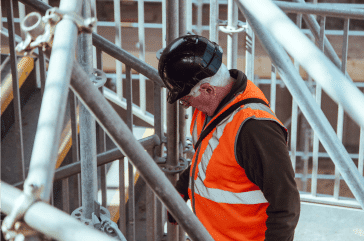Construction projects are complex and require multiple parties to work together to ensure successful completion. However, there are risks associated with construction projects, such as financial loss, project delays, and work defects.
Surety bonding is a tool used in the construction industry to manage risk and protect the interests of various parties involved in a construction project. This article will discuss the role of surety bonding in Canadian construction projects.
What Is Surety Bonding?
Surety bonding is a three-party contract between the owner of a construction project, the contractor, and the surety. The owner requires the contractor to obtain a surety bond to ensure that the contractor performs their obligations according to the terms of the construction contract. The surety is a third-party company that guarantees the contractor’s performance and financial obligations to the owner.
Types of Surety Bonds
There are three types of surety bonds used in Canadian construction projects: bid bonds, performance bonds, and payment bonds.
A bid bond provides financial protection to the owner if the contractor fails to accept the contract after being awarded the project. A performance bond guarantees the contractor’s performance of the construction contract, including meeting deadlines and completing the project according to the specifications. A payment bond ensures the contractor pays all suppliers, subcontractors, and labourers involved in the project.
Benefits of Surety Bonding
The use of surety bonding provides several benefits to all parties involved in a construction project. For owners, surety bonding ensures that the contractor has the financial capability and expertise to complete the project.
If the contractor fails to perform, the surety will step in to complete the project or compensate the owner for any losses incurred. Surety bonding also provides protection to subcontractors, suppliers, and labourers by ensuring payment for their work. This can help to prevent project delays and disputes.
Contractors also benefit from surety bonding. Obtaining a surety bond can increase the contractor’s credibility and reputation with potential clients, leading to more opportunities for work. It also provides a safety net for the contractor if unforeseen circumstances arise during the project.
Surety bonding also benefits the surety company. Surety companies carefully evaluate contractors before issuing a bond, ensuring that only contractors with a proven track record of success are bonded. This reduces the risk of default and ensures that the surety company is only working with reliable contractors.
Cost of Surety Bonding
The cost of surety bonding varies depending on the type of bond and the contractor’s financial history. Bid bonds are typically free, while performance and payment bonds require a premium paid by the contractor. The premium is usually a percentage of the contract value based on the contractor’s creditworthiness, experience, and financial stability.
Conclusion
Surety bonding is an essential tool in Canadian construction projects. It provides protection to all parties involved by ensuring that the project is completed according to the contract’s terms and that all parties are paid for their work.
The use of surety bonding provides financial security and reduces the risk of disputes and delays. It is important for contractors to understand the different types of bonds available and the associated costs to ensure they are adequately bonded for each project.
Don’t let your construction project be hindered by financial loss or delays. Get the peace of mind you need with a surety bond from Approved Casualty & Surety. As a leading provider of surety bonds in Ontario, our team of experts will work with you to tailor a solution that meets your needs. Contact us today for more details.







